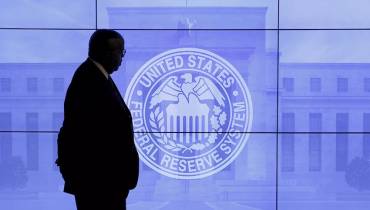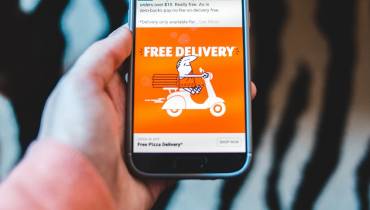Attain Financial Freedom: 4 Things to Do & Put in Your Bucket List

Are you concerned about your financial situation? If so, you're certainly not alone. According to a recent report, 25% of Americans are worried about their finances.
Some of the most common worries about money include not having enough cash to get by, covering the rising costs of healthcare, and falling deeper into debt.
Sometimes, when you worry about a situation, you feel helpless to make it better and end up doing nothing. To stop yourself from falling into this trap, turn your money woes into money goals. An effective way to do this is to create a financial bucket list.
While you might think of a bucket list as containing items like skydiving, visiting the pyramids, or other exotic experiences you wish to check off before “kicking the bucket,” you also can create a financial one containing the goals you want to achieve.
Financial Bucket List to Attain Financial Freedom
A financial bucket list can not only help you attain your goals, but also help you achieve financial freedom. It can be used like a map to help you pay off debts, save money for retirement, and more.
If you’re yearning for financial freedom, you need to do things differently and start managing your money better. Consider the following key things to do and include in your financial bucket list:
1. Change your living arrangement
Start by looking at how you live. Does your home contain more living space than you need? Can you find ways to live that will drastically reduce your living expenses?
If you've answered “Yes” to both of those questions, it's probably high time you made some changes in your living arrangement:-
- Downsize to an apartment. Renting an apartment is often much cheaper than owning a home. You won't have to think about things like property taxes or covering the cost of replacing appliances when they break down.
- Relocate to a cheaper area. If you’re looking to broaden your horizons while saving money, consider a bigger move. Plenty of up-and-coming cities across the country — such as Atlanta, Omaha, or Philadelphia — offer inexpensive rental rates along with plentiful jobs and business opportunities. The money you might spend on a move would be offset by a lower cost of living.
- Get a roommate. Whether you own your home or rent an apartment, getting a roommate (or two, or three) is a great way to split your monthly payments, along with your heating and electric bill. One roommate might be enough, but if you can handle living with two or three other people, your monthly bills will get even cheaper.
2. Take on a new role
In order to meet your financial goals, you'll need to earn more money than you spend. One way to draw in more income is to take on a new role in the world of work. This could mean getting a side job and becoming a barista, for example, or it could also mean doing one of the following:-
- Start a business. If you have a skill or service that people would pay money for, why not become an entrepreneur and start your own business? Some businesses you can start for very little money include pet sitting, cake decorating, event planning, and personal shopping. Whatever business you decide upon, you’ll need to look into ways to market yourself and your work, like attending trade shows and building a website.
- Become a landlord. If you own a home, you might consider becoming a landlord and renting out your basement or another part of the house. You could even buy a piece of vacation rental property so that renters can provide you with a passive source of income.
- Try extreme couponing. It might surprise you to know that 96% of Americans use coupons, and the reason is simple: Coupons help them save money. Some people take couponing to the extreme, finding ways to use them for every single transaction; those who do say their efforts are worth it. So if you're into saving money, why not take on the role of extreme couponer?
3. Invest your money in something different
If you have trouble with money, you’ve most likely repeated the same financial habits for years. Maybe you have a history of overspending, or it's hard for you to stick to your budget. Whatever the case may be, it's time to get out of that financial rut and do something different with your money.
- Buy some stocks. Contrary to what you might think, you don't need a lot of money to buy stocks. Some online brokerages let you buy stocks for just $100 and make trades for only $5. When playing the market, you'll be thrilled to watch the values go up. And it’s definitely an activity for the bucket list!
- Deduct more from your paycheck. if you're like most working Americans, you want the least amount possible taken out of each paycheck. But did you know that by deducting more, you can calculate a bigger tax refund for yourself? Try it for a year and see what happens. When you get your refund, pay off a credit card or start an emergency fund.
- Spend more wisely. One of the first things you can do to spend more wisely is to create a budget and keep track of where your money goes. After you've got a budget in place, you can stay within its bounds by shopping at thrift stores, buying generic instead of brand names, and paying cash instead of using your credit card.
4. Quit bad habits
In many cases, cutting out bad habits doesn’t just benefit your physical and mental health; it also can benefit your financial health. Most habits cost money, and even though they may only cost a few bucks a day, it very easily adds up.
- Quit smoking. The average cost of a pack of cigarettes is $6.28, which means by smoking a pack a day, you spend over $2,000 a year. Even if you don't smoke that much, quitting will always save you money.
- Stop buying expensive coffee. If you need your morning caffeine fix, instead of going to a drive-thru and ordering that expensive latte, why not start brewing your own at home? It might not taste as good, but it will most likely have much less sugar, not to mention cost you less money. Buying coffee every day can add up to $1,200 a year, compared to making your own, which costs about $45 a year.
- Eat out less. Eating in restaurants is fun, and if you're not much of a cook, it can seem like the only way to survive. However, this is one habit that can get expensive in a hurry, even if you eat less expensive fast food (which can cost you physically, down the road). You can still save anywhere from $400 to $2,000 a year by making your own food, instead. And knowing how to cook for yourself and others is a skill everyone should have.
In Conclusion
Life is expensive, and money goals can seem too lofty to reach. But really, it only takes some behavioral changes to start creating a better fiscal picture for yourself.
If you can create a budget, cut out some unnecessary expenses, and bring new energy and focus into the way you approach your finances, you could start checking off bucket-list items left and right — leaving you more free and secure financially.




















